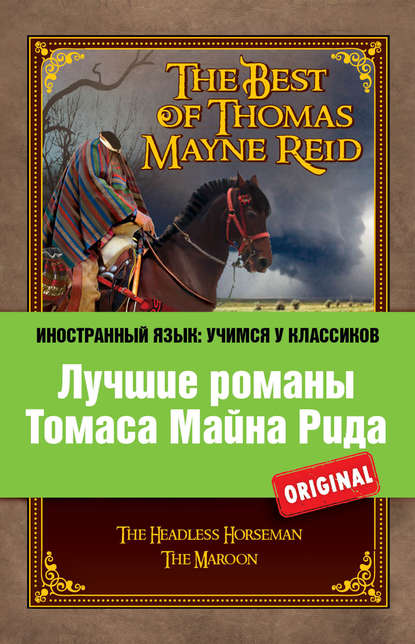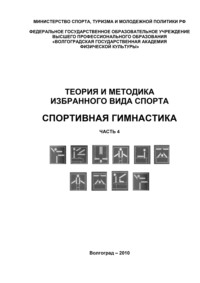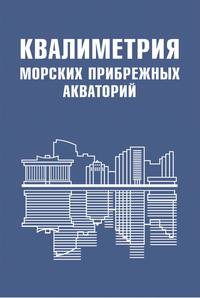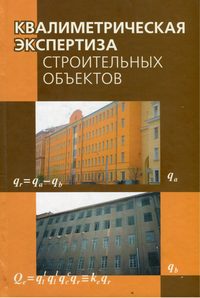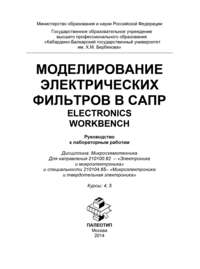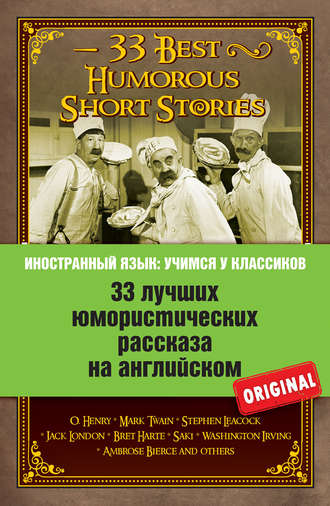
Полная версия
33 лучших юмористических рассказа на английском / 33 Best Humorous Short Stories
Her kicks, too, were as admirable in quality as inexhaustible in quantity. They were incomparably superior to those of the untutored kine that had not made the art a life study – mere amateurs that kicked ‘by ear,’ as they say in music. I saw her once standing in the road, professedly fast asleep, and mechanically munching her cud with a sort of Sunday morning lassitude, as one munches one’s cud in a dream. Snouting about at her side, blissfully unconscious of impending danger and wrapped up in thoughts of his sweetheart, was a gigantic black hog – a hog of about the size and general appearance of a yearling rhinoceros. Suddenly, while I looked – without a visible movement on the part of the cow – with never a perceptible tremor of her frame, nor a lapse in the placid regularity of her chewing – that hog had gone away from there – had utterly taken his leave. But away toward the pale horizon a minute black speck was traversing the empyrean with the speed of a meteor, and in a moment had disappeared, without audible report, beyond the distant hills. It may have been that hog.
Currying cows is not, I think, a common practice, even in Michigan; but as this one had never needed milking, of course she had to be subjected to some equivalent form of persecution; and irritating her skin with a currycomb was thought as disagreeable an attention as a thoughtful affection could devise. At least she thought it so; though I suspect her mistress really meant it for the good creature’s temporal advantage. Anyhow my aunt always made it a condition to the employment of a farm-servant that he should curry the cow every morning; but after just enough trials to convince himself that it was not a sudden spasm, nor a mere local disturbance, the man would always give notice of an intention to quit, by pounding the beast half-dead with some foreign body and then limping home to his couch. I don’t know how many men the creature removed from my aunt’s employ in this way, but judging from the number of lame persons in that part of the country, I should say a good many; though some of the lameness may have been taken at second-hand from the original sufferers by their descendants, and some may have come by contagion.
I think my aunt’s was a faulty system of agriculture. It is true her farm labor cost her nothing, for the laborers all left her service before any salary had accrued; but as the cow’s fame spread abroad through the several States and Territories, it became increasingly difficult to obtain hands; and, after all, the favorite was imperfectly curried. It was currently remarked that the cow had kicked the farm to pieces – a rude metaphor, implying that the land was not properly cultivated, nor the buildings and fences kept in adequate repair.
It was useless to remonstrate with my aunt: she would concede everything, amending nothing. Her late husband had attempted to reform the abuse in this manner, and had had the argument all his own way until he had remonstrated himself into an early grave; and the funeral was delayed all day, until a fresh undertaker could be procured, the one originally engaged having confidingly undertaken to curry the cow at the request of the widow.
Since that time my Aunt Patience had not been in the matrimonial market; the love of that cow had usurped in her heart the place of a more natural and profitable affection. But when she saw her seeds unsown, her harvests ungarnered, her fences overtopped with rank brambles and her meadows gorgeous with the towering Canada thistle she thought it best to take a partner.
When it transpired that my Aunt Patience intended wedlock there was intense popular excitement. Every adult single male became at once a marrying man. The criminal statistics of Badger county show that in that single year more marriages occurred than in any decade before or since. But none of them was my aunt’s. Men married their cooks, their laundresses, their deceased wives’ mothers, their enemies’ sisters – married whomsoever would wed; and any man who, by fair means or courtship, could not obtain a wife went before a justice of the peace and made an affidavit that he had some wives in Indiana. Such was the fear of being married alive by my Aunt Patience.
Now, where my aunt’s affection was concerned she was, as the reader will have already surmised, a rather determined woman; and the extraordinary marrying epidemic having left but one eligible male in all that county, she had set her heart upon that one eligible male; then she went and carted him to her home. He turned out to be a long Methodist parson, named Huggins.
Aside from his unconscionable length, the Rev. Berosus Huggins was not so bad a fellow, and was nobody’s fool. He was, I suppose, the most ill-favored mortal, however, in the whole northern half of America – thin, angular, cadaverous of visage and solemn out of all reason. He commonly wore a low-crowned black hat, set so far down upon his head as partly to eclipse his eyes and wholly obscure the ample glory of his ears. The only other visible article of his attire (except a brace of wrinkled cowskin boots, by which the word ‘polish’ would have been considered the meaningless fragment of a lost language) was a tight-fitting black frock-coat, preternaturally long in the waist, the skirts of which fell about his heels, sopping up the dew. This he always wore snugly buttoned from the throat downward. In this attire he cut a tolerably spectral figure. His aspect was so conspicuously unnatural and inhuman that whenever he went into a cornfield, the predatory crows would temporarily forsake their business to settle upon him in swarms, fighting for the best seats upon his person, by way of testifying their contempt for the weak inventions of the husbandman.
The day after the wedding my Aunt Patience summoned the Rev. Berosus to the council chamber, and uttered her mind to the following intent:
‘Now, Huggy, dear, I’ll tell you what there is to do about the place. First, you must repair all the fences, clearing out the weeds and repressing the brambles with a strong hand. Then you will have to exterminate the Canadian thistles, mend the wagon, rig up a plow or two, and get things into ship-shape generally. This will keep you out of mischief for the better part of two years; of course you will have to give up preaching, for the present. As soon as you have – O! I forgot poor Phœbe. She’ —
‘Mrs. Huggins,’ interrupted her solemn spouse, ‘I shall hope to be the means, under Providence, of effecting all needful reforms in the husbandry of this farm. But the sister you mention (I trust she is not of the world’s people) – have I the pleasure of knowing her? The name, indeed, sounds familiar, but’ —
‘Not know Phœbe!’ cried my aunt, with unfeigned astonishment; ‘I thought everybody in Badger knew Phœbe. Why, you will have to scratch her legs, every blessed morning of your natural life!’
‘I assure you, madam,’ rejoined the Rev. Berosus, with dignity, ‘it would yield me a hallowed pleasure to minister to the spiritual needs of sister Phœbe, to the extent of my feeble and unworthy ability; but, really, I fear the merely secular ministration of which you speak must be entrusted to abler and, I would respectfully suggest, female hands.’
‘Whyyy, youuu ooold, foooool!’ replied my aunt, spreading her eyes with unbounded amazement, ‘Phœbe is acow!’
‘In that case,’ said the husband, with unruffled composure, ‘it will, of course, devolve upon me to see that her carnal welfare is properly attended to; and I shall be happy to bestow upon her legs such time as I may, without sin, snatch from my strife with Satan and the Canadian thistles.’
With that the Rev. Mr. Huggins crowded his hat upon his shoulders, pronounced a brief benediction upon his bride, and betook himself to the barn-yard.
Now, it is necessary to explain that he had known from the first who Phœbe was, and was familiar, from hearsay, with all her sinful traits. Moreover, he had already done himself the honor of making her a visit, remaining in the vicinity of her person, just out of range, for more than an hour and permitting her to survey him at her leisure from every point of the compass. In short, he and Phœbe had mutually reconnoitered and prepared for action.
Amongst the articles of comfort and luxury which went to make up the good parson’sdot, and which his wife had already caused to be conveyed to his new home, was a patent cast-iron pump, about seven feet high. This had been deposited near the barn-yard, preparatory to being set up on the planks above the barn-yard well. Mr. Huggins now sought out this invention and conveying it to its destination put it into position, screwing it firmly to the planks. He next divested himself of his long gaberdine and his hat, buttoning the former loosely about the pump, which it almost concealed, and hanging the latter upon the summit of the structure. The handle of the pump, when depressed, curved outwardly between the coat-skirts, singularly like a tail, but with this inconspicuous exception, any unprejudiced observer would have pronounced the thing Mr. Huggins, looking uncommonly well.
The preliminaries completed, the good man carefully closed the gate of the barnyard, knowing that as soon as Phœbe, who was campaigning in the kitchen garden, should note the precaution she would come and jump in to frustrate it, which eventually she did. Her master, meanwhile, had laid himself, coatless and hatless, along the outside of the close board fence, where he put in the time pleasantly, catching his death of cold and peering through a knot-hole.
At first, and for some time, the animal pretended not to see the figure on the platform. Indeed she had turned her back upon it directly she arrived, affecting a light sleep. Finding that this stratagem did not achieve the success that she had expected, she abandoned it and stood for several minutes irresolute, munching her cud in a half-hearted way, but obviously thinking very hard. Then she began nosing along the ground as if wholly absorbed in a search for something that she had lost, tacking about hither and thither, but all the time drawing nearer to the object of her wicked intention. Arrived within speaking distance, she stood for a little while confronting the fraudful figure, then put out her nose toward it, as if to be caressed, trying to create the impression that fondling and dalliance were more to her than wealth, power and the plaudits of the populace – that she had been accustomed to them all her sweet young life and could not get on without them. Then she approached a little nearer, as if to shake hands, all the while maintaining the most amiable expression of countenance and executing all manner of seductive nods and winks and smiles. Suddenly she wheeled about and with the rapidity of lightning dealt out a terrible kick – a kick of inconceivable force and fury, comparable to nothing in nature but a stroke of paralysis out of a clear sky!
The effect was magical! Cows kick, not backward but sidewise. The impact which was intended to project the counterfeit theologian into the middle of the succeeding conference week reacted upon the animal herself, and it and the pain together set her spinning like a top. Such was the velocity of her revolution that she looked like a dim, circular cow, surrounded by a continuous ring like that of the planet Saturn – the white tuft at the extremity of her sweeping tail! Presently, as the sustaining centrifugal force lessened and failed, she began to sway and wabble from side to side, and finally, toppling over on her side, rolled convulsively on her back and lay motionless with all her feet in the air, honestly believing that the world had somehow got atop of her and she was supporting it at a great sacrifice of personal comfort. Then she fainted.
How long she lay unconscious she knew not, but at last she unclosed her eyes, and catching sight of the open door of her stall, ‘more sweet than all the landscape smiling near,’ she struggled up, stood wavering upon three legs, rubbed her eyes, and was visibly bewildered as to the points of the compass. Observing the iron clergyman standing fast by its faith, she threw it a look of grieved reproach and hobbled heart-broken into her humble habitation, a subjugated cow.
For several weeks Phœbe’s right hind leg was swollen to a monstrous growth, but by a season of judicious nursing she was ‘brought round all right,’ as her sympathetic and puzzled mistress phrased it, or ‘made whole,’ as the reticent man of God preferred to say. She was now as tractable and inoffensive ‘in her daily walk and conversation’ (Huggins) as a little child. Her new master used to take her ailing leg trustfully into his lap, and for that matter, might have taken it into his mouth if he had so desired. Her entire character appeared to be radically changed – so altered that one day my Aunt Patience, who, fondly as she loved her, had never before so much as ventured to touch the hem of her garment, as it were, went confidently up to her to soothe her with a pan of turnips. Gad! how thinly she spread out that good old lady upon the face of an adjacent stone wall! You could not have done it so evenly with a trowel.
The Widower Turmore
The circumstances under which Joram Turmore became a widower have never been popularly understood. I know them, naturally, for I am Joram Turmore; and my wife, the late Elizabeth Mary Turmore, is by no means ignorant of them; but although she doubtless relates them, yet they remain a secret, for not a soul has ever believed her.
When I married Elizabeth Mary Johnin she was very wealthy, otherwise I could hardly have afforded to marry, for I had not a cent, and Heaven had not put into my heart any intention to earn one. I held the Professorship of Cats in the University of Graymaulkin, and scholastic pursuits had unfitted me for the heat and burden of business or labor. Moreover, I could not forget that I was a Turmore – a member of a family whose motto from the time of William of Normandy has beenLaborare est errare. The only known infraction of the sacred family tradition occurred when Sir Aldebaran Turmore de Peters-Turmore, an illustrious master burglar of the seventeenth century, personally assisted at a difficult operation undertaken by some of his workmen. That blot upon our escutcheon cannot be contemplated without the most poignant mortification.
My incumbency of the Chair of Cats in the Graymaulkin University had not, of course, been marked by any instance of mean industry. There had never, at any one time, been more than two students of the Noble Science, and by merely repeating the manuscript lectures of my predecessor, which I had found among his effects (he died at sea on his way to Malta) I could sufficiently sate their famine for knowledge without really earning even the distinction which served in place of salary.
Naturally, under the straitened circumstances, I regarded Elizabeth Mary as a kind of special Providence. She unwisely refused to share her fortune with me, but for that I cared nothing; for, although by the laws of that country (as is well known) a wife has control of her separate property during her life, it passes to the husband at her death; nor can she dispose of it otherwise by will. The mortality among wives is considerable, but not excessive.
Having married Elizabeth Mary and, as it were, ennobled her by making her a Turmore, I felt that the manner of her death ought, in some sense, to match her social distinction. If I should remove her by any of the ordinary marital methods I should incur a just reproach, as one destitute of a proper family pride. Yet I could not hit upon a suitable plan.
In this emergency I decided to consult the Turmore archives, a priceless collection of documents, comprising the records of the family from the time of its founder in the seventh century of our era. I knew that among these sacred muniments I should find detailed accounts of all the principal murders committed by my sainted ancestors for forty generations. From that mass of papers I could hardly fail to derive the most valuable suggestions.
The collection contained also most interesting relics. There were patents of nobility granted to my forefathers for daring and ingenious removals of pretenders to thrones, or occupants of them; stars, crosses and other decorations attesting services of the most secret and unmentionable character; miscellaneous gifts from the world’s greatest conspirators, representing an intrinsic money value beyond computation. There were robes, jewels, swords of honor, and every kind of ‘testimonials of esteem’; a king’s skull fashioned into a wine cup; the title deeds to vast estates, long alienated by confiscation, sale, or abandonment; an illuminated breviary that had belonged to Sir Aldebaran Turmore de Peters-Turmore of accursed memory; embalmed ears of several of the family’s most renowned enemies; the small intestine of a certain unworthy Italian statesman inimical to Turmores, which, twisted into a jumping rope, had served the youth of six kindred generations – mementoes and souvenirs precious beyond the appraisals of imagination, but by the sacred mandates of tradition and sentiment forever inalienable by sale or gift.
As the head of the family, I was custodian of all these priceless heirlooms, and for their safe keeping had constructed in the basement of my dwelling a strong-room of massive masonry, whose solid stone walls and single iron door could defy alike the earthquake’s shock, the tireless assaults of Time, and Cupidity’s unholy hand.
To this thesaurus of the soul, redolent of sentiment and tenderness, and rich in suggestions of crime, I now repaired for hints upon assassination. To my unspeakable astonishment and grief I found it empty! Every shelf, every chest, every coffer had been rifled. Of that unique and incomparable collection not a vestige remained! Yet I proved that until I had myself unlocked the massive metal door, not a bolt nor bar had been disturbed; the seals upon the lock had been intact.
I passed the night in alternate lamentation and research, equally fruitless, the mystery was impenetrable to conjecture, the pain invincible to balm. But never once throughout that dreadful night did my firm spirit relinquish its high design against Elizabeth Mary, and daybreak found me more resolute than before to harvest the fruits of my marriage. My great loss seemed but to bring me into nearer spiritual relations with my dead ancestors, and to lay upon me a new and more inevitable obedience to the suasion that spoke in every globule of my blood.
My plan of action was soon formed, and procuring a stout cord I entered my wife’s bedroom finding her, as I expected, in a sound sleep. Before she was awake, I had her bound fast, hand and foot. She was greatly surprised and pained, but heedless of her remonstrances, delivered in a high key, I carried her into the now rifled strong-room, which I had never suffered her to enter, and of whose treasures I had not apprised her. Seating her, still bound, in an angle of the wall, I passed the next two days and nights in conveying bricks and mortar to the spot, and on the morning of the third day had her securely walled in, from floor to ceiling. All this time I gave no further heed to her pleas for mercy than (on her assurance of non-resistance, which I am bound to say she honorably observed) to grant her the freedom of her limbs. The space allowed her was about four feet by six. As I inserted the last bricks of the top course, in contact with the ceiling of the strong-room, she bade me farewell with what I deemed the composure of despair, and I rested from my work, feeling that I had faithfully observed the traditions of an ancient and illustrious family. My only bitter reflection, so far as my own conduct was concerned, came of the consciousness that in the performance of my design I had labored; but this no living soul would ever know.
After a night’s rest I went to the Judge of the Court of Successions and Inheritances and made a true and sworn relation of all that I had done – except that I ascribed to a servant the manual labor of building the wall. His honor appointed a court commissioner, who made a careful examination of the work, and upon his report Elizabeth Mary Turmore was, at the end of a week, formally pronounced dead. By due process of law I was put into possession of her estate, and although this was not by hundreds of thousands of dollars as valuable as my lost treasures, it raised me from poverty to affluence and brought me the respect of the great and good.
Some six months after these events strange rumors reached me that the ghost of my deceased wife had been seen in several places about the country, but always at a considerable distance from Graymaulkin. These rumors, which I was unable to trace to any authentic source, differed widely in many particulars, but were alike in ascribing to the apparition a certain high degree of apparent worldly prosperity combined with an audacity most uncommon in ghosts. Not only was the spirit attired in most costly raiment, but it walked at noonday, and even drove! I was inexpressibly annoyed by these reports, and thinking there might be something more than superstition in the popular belief that only the spirits of the unburied dead still walk the earth, I took some workmen equipped with picks and crowbars into the now long unentered strong-room, and ordered them to demolish the brick wall that I had built about the partner of my joys. I was resolved to give the body of Elizabeth Mary such burial as I thought her immortal part might be willing to accept as an equivalent to the privilege of ranging at will among the haunts of the living.
In a few minutes we had broken down the wall and, thrusting a lamp through the breach, I looked in. Nothing! Not a bone, not a lock of hair, not a shred of clothing—the narrow space which, upon my affidavit, had been legally declared to hold all that was mortal of the late Mrs. Turmore was absolutely empty! This amazing disclosure, coming upon a mind already overwrought with too much of mystery and excitement, was more than I could bear. I shrieked aloud and fell in a fit. For months afterward I lay between life and death, fevered and delirious; nor did I recover until my physician had had the providence to take a case of valuable jewels from my safe and leave the country.
The next summer I had occasion to visit my wine cellar, in one corner of which I had built the now long disused strong-room. In moving a cask of Madeira I struck it with considerable force against the partition wall, and was surprised to observe that it displaced two large square stones forming a part of the wall.
Applying my hands to these, I easily pushed them out entirely, and looking through saw that they had fallen into the niche in which I had immured my lamented wife; facing the opening which their fall left, and at a distance of four feet, was the brickwork which my own hands had made for that unfortunate gentlewoman’s restraint. At this significant revelation I began a search of the wine cellar. Behind a row of casks I found four historically interesting but intrinsically valueless objects:
First, the mildewed remains of a ducal robe of state (Florentine) of the eleventh century; second, an illuminated vellum breviary with the name of Sir Aldebaran Turmore de Peters-Turmore inscribed in colors on the title page; third, a human skull fashioned into a drinking cup and deeply stained with wine; fourth, the iron cross of a Knight Commander of the Imperial Austrian Order of Assassins by Poison.
That was all – not an object having commercial value, no papers – nothing. But this was enough to clear up the mystery of the strong-room. My wife had early divined the existence and purpose of that apartment, and with the skill amounting to genius had effected an entrance by loosening the two stones in the wall.
Through that opening she had at several times abstracted the entire collection, which doubtless she had succeeded in converting into coin of the realm. When with an unconscious justice which deprives me of all satisfaction in the memory I decided to build her into the wall, by some malign fatality I selected that part of it in which were these movable stones, and doubtless before I had fairly finished my bricklaying she had removed them and, slipping through into the wine cellar, replaced them as they were originally laid. From the cellar she had easily escaped unobserved, to enjoy her infamous gains in distant parts. I have endeavored to procure a warrant, but the Lord High Baron of the Court of Indictment and Conviction reminds me that she is legally dead, and says my only course is to go before the Master in Cadavery and move for a writ of disinterment and constructive revival. So it looks as if I must suffer without redress this great wrong at the hands of a woman devoid alike of principle and shame.


